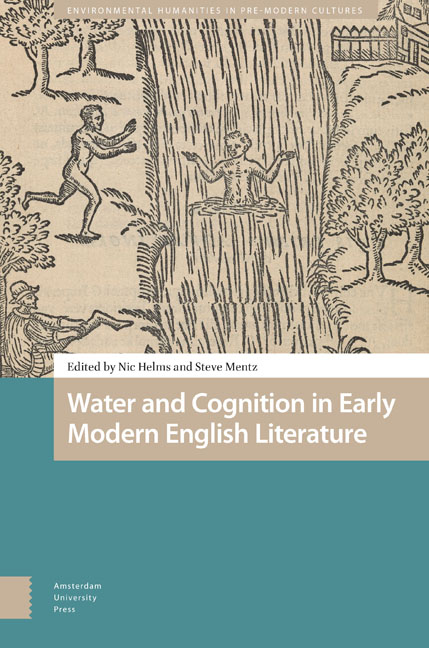Book contents
5 - Richard of Gloucester’s Elemental Thinking : Water and Sovereignty in Shakespeare’s First Tetralogy
Published online by Cambridge University Press: 16 April 2024
Summary
Abstract
Drawing upon elemental ecocriticism and cognitive theory, in particular the “4E perspective” that sees the mind as embodied, enactive, embedded, and extended, this essay argues that Richard of Gloucester's remarkable transformation in Shakespeare's Henry VI, Part 3 is bound up with his desire to maintain a sovereign control of the element of water. Richard not only sees water as power, he also thinks with it; water is part of his cognitive process throughout the first tetralogy. Sovereignty is here regarded not simply as a discourse but also as a particular experience of distributed cognition that extends across mind, body, and world.
Keywords: Henry VI, Part 3, Richard III, sovereignty, embodiment, extended mind, interiority
That Richard of Gloucester undergoes some kind of transformation at the conclusion of Shakespeare's Henry VI plays few, if any, critics would dispute. The nature of this metamorphosis, how radical it is, and when it occurs are matters that spark debate. Drawing upon elemental ecocriticism and cognitive theory, in particular the “4E perspective” that sees the mind as embodied, enactive, embedded, and extended, this essay takes a fresh look at Richard's transformation by focusing on the relationship between sovereignty, cognition, and the prodigious flow of water in the first tetralogy. Water can refer to the flood of salty tears that threatens to turn England into a swamp of sorrow, but it can also refer to the rivers, oceans, and rain that ultimately elude the grasp of sovereign control. Far from being merely an external manifestation of an internal, self-enclosed cognitive state, tears merge with the rest of the watery world; indeed, water does not respect boundaries between the subjective and the objective, the interior and the exterior. Water provides an especially challenging test for a cognitive theory approach to reading the first tetralogy: if a 4E perspective grounds the senses in a particular place, the flux and formlessness of water would seem to provide at best a merely transitory orientation, shape, or position in space. By the time we reach Richard III, however, we find that Richard's watery thinking defines a powerful, protean self amid the instability of the struggle for sovereignty.
- Type
- Chapter
- Information
- Water and Cognition in Early Modern English Literature , pp. 115 - 136Publisher: Amsterdam University PressPrint publication year: 2024



